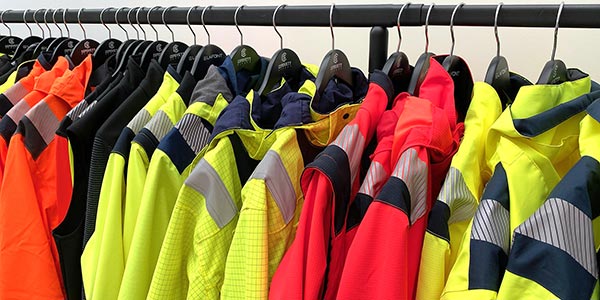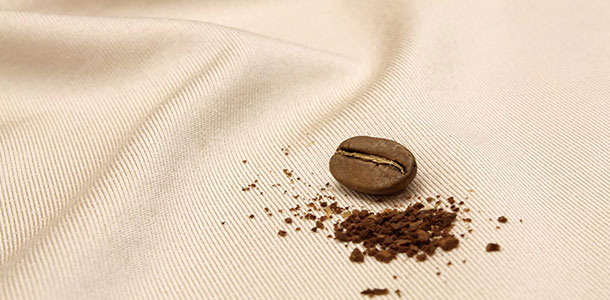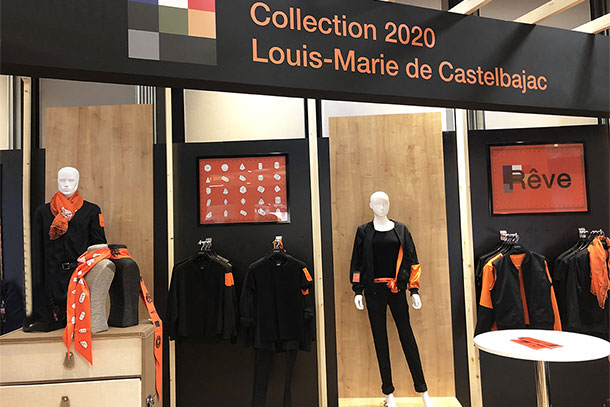Raising awareness among our stakeholders
- Commitment #10 -

Focus 2022
Second-hand clothing, a market with a future
The second-hand market has reached nearly 10 billion euros in sales in France in 2021, largely driven by online sales platforms such as Vinted, Vestiaire Collective, Vide Dressing...
Economic and ecological, this trend of responsible consumption has accelerated during the health crisis, driven by a change in mentality, which encourages consumers to adopt more sustainable purchasing habits. The motivations of buyers are multiple, even if one of the most important is undoubtedly economic, there is a certain idea of "circularity of the object", which appeals in particular to the new generation. By diversifying their product offerings, textile brands are experimenting with a new way of creating value without producing, by enhancing associated services, while demonstrating the strength of their commitment to sustainability. This is an approach that companies are in the process of fully integrating.

Focus 2021
S-cafe, a fabric made from coffee grounds
Coffee can be consumed in other ways than in a cup! It has, in fact, functional properties that allow it to be transformed into textile components.
Created by the Taiwanese textile company Singtex, "S.café" is a technical composite fiber made from recycled coffee grounds and partly from recycled PET. It offers excellent breathability and UV protection. Used in the manufacture of clothing, it has the virtue of eliminating odors and providing a pleasant sensation on the skin, even for intensive activities. Made in France, this innovative fabric provides an interesting alternative to synthetic textiles made from petroleum. Giving a second life to coffee would perhaps allow us to imagine the textile of the future.

Focus 2020
Orange Customer Convention 2019
Orange is one of the world's leading telecommunications operators. In 2019, Orange has notably invited its professional clothing and uniform supplier CEPOVETT to its customer convention in Nice. The opportunity given to the French SME to bring its textile expertise to the organization of a fashion show with the employees during this time to make everyone discover the new collection designed by Louis-Marie de Castelbajac. An opportunity to fully illustrate Orange's environmental commitments and its desire, through this new collection, to share them with its employees. Orange and CEPOVETT are pursuing the same ambition within the framework of this cooperation.
Focus 2019
Solidarity touch-ups with Mulieris Brussels
It is the Mulieris workshop that CEPOVETT Group has chosen for its major Belgian customers, such as Thalys or STIB, to carry out all the measurements and alterations of the uniforms worn by the agents in Benelux. This extraordinary Brussels-based sewing workshop makes ethical and responsible fashion. Born from a socio-professional integration project led by the association ASBL, the Mulieris workshop aims to create employment and help with professional reintegration (16 people in 2018). With this local and socially responsible factory, the municipality of Anderlecht supports a unique concept in Europe. In almost thirteen years of existence, the workshop has made a name for itself in the closed world of fashion.
Focus 2018
Co-construction of solidarity projects with our stakeholders
CEPOVETT Group has made professional clothing a collaborative and participative subject at all stages of its life, from its design to its distribution. Because CSR is not a matter to be dealt with alone, the company has, from the outset, integrated the challenges of the circular economy, woven a web between employees and stakeholders, and worked on joint projects in a spirit of mutual aid and solidarity. This co-construction approach extends to relations with suppliers and is reflected in the implementation of solidarity projects involving all stakeholders (customers, suppliers, NGOs, associations, employees, etc.). In 2017, the solidarity adventure continues for CEPOVETT Group through its Epsilon site, which has partnered with an emblematic and humanistic figure on the island of Madagascar: Father Pedro. In order to support the action of this humanist priest who has been working for more than 20 years to integrate Malagasy orphans, the company has set up a partnership in which it undertakes to provide the Malagasy association with school gowns. In return, the 12,000 children will plant 12,000 trees and become collectively involved in the CEPOVETT Group reforestation program for future generations, "1 child, 1 tree".
Focus 2017
2017 Report
CEPOVETT Group has made professional clothing a collaborative and participative subject at all stages of its life, from its design to its distribution. In 2016, the company raised awareness among its stakeholders about the social and environmental added value of their work clothes. CEPOVETT Group focuses on the transparency of the manufacturing process and the cultivation of raw materials, including organically grown and fair trade cotton. In order to support its action with the users of its clothing for the respect of the environment, the company proposes a virtual display label of the environmental footprint for its products. Similarly, CEPOVETT Group is conducting a campaign to raise awareness of water and energy consumption during the cleaning cycles of its textile products.
Focus 2016
2016 Report
Professional clothing is a strong social vector within an organization. By making its customers and collaborators actors of the conception of the garment, CEPOVETT Group makes its stakeholders aware of the social and environmental added value of their work clothes. The group emphasizes the transparency of the manufacturing process, from cultivation to spinning, as well as the quality of the raw materials, especially the organic and fair trade cotton. In 2015, CEPOVETT Group allowed employees and users of their garments to get involved upstream of the production chain by participating in the design of a future collection. These meetings allow us to create garments that are perfectly suited to their needs, both in terms of ergonomics and the choice of materials used, and that meet the challenges of safety and protection.


